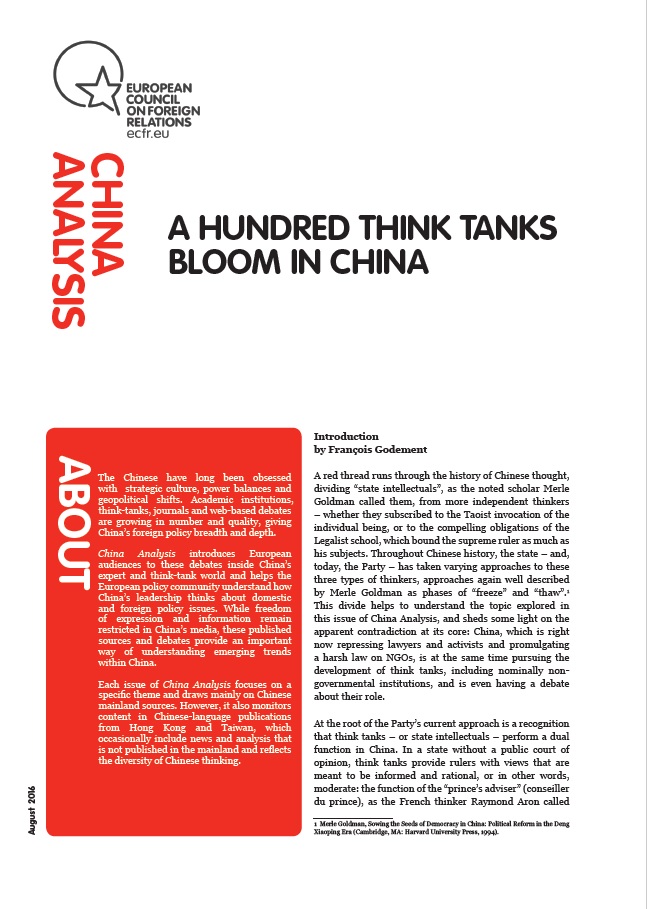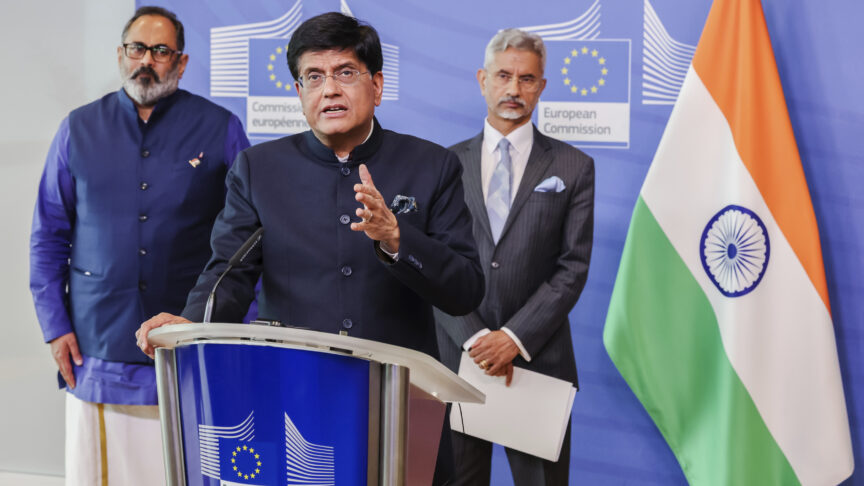A hundred think tanks bloom in China
China is enjoying a “think tank Spring” but its policy institutes suffer from a lack of independence due to their reliance on an authoritarian state
China is in the throes of “think tank fever” but its policy institutes suffer from a lack of independence as a result of their reliance on an authoritarian state, according to a new report from ECFR.
A hundred think tanks bloom in China, the new edition of ECFR’s China Analysis series, collates the latest writing from Chinese language authors examining China’s “think tank Spring”. It finds that Xi Jinping’s call for the construction of “think tanks with Chinese characteristics” has led to a proliferation of institutes and an expansion of their portfolio of activities, their international networks and their public profiles.
However, it would seem that quantity has come at the cost of quality, with these new organizations struggling to overcome the basic tension between their roles as critical policy analysts and advocates for the government. Chinese think tanks depend on public funds and are expected to strengthen China’s soft power abroad. They are warned against improperly discussing central government policies and expected to build a strong social foundation for national priorities such as the One Belt One Road initiative. Indeed, the push to build new think tanks is overseen by a division of the Propaganda Department. In practice, this means that much of their work has been restricted to interpreting and legitimizing decisions that have already been made.
Francois Godement, director of ECFR’s Asia and China programme, said:
“Think tanks perform a dual function in China. In a state without a public court of opinion, the first is to provide rulers with objective views, while the second is to broadcast Chinese views of the world. Our exploration indicates that, at the moment, there is a shortage of those capable of performing the first function, and a surfeit of those ready to fulfil the second.”
The European Council on Foreign Relations does not take collective positions. ECFR publications only represent the views of their individual authors.



